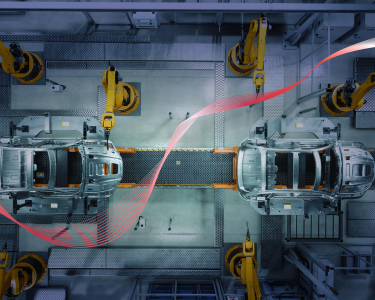Ask any business leader and they’ll agree: Customer acquisition costs are too high and switching costs too low. Churn is every sales leader’s worst-case scenario. So celebrate that new account and toast your growing business. But remember, as smart leaders do, that customers are fickle and easily charmed by a competitor’s rosy promises. Accounts can slip away and defect to competitors faster than you might imagine.
Preventing this defection requires a swift pivot from customer acquisition to customer retention. From what we’ve observed, it’s quite a bit more expensive to acquire new customers than to retain existing ones. Without sustained customer-first attention and investments, you won’t be able to reap the rewards of an expanding customer base for very long.
Investing in a Long-Term Relationship
We always want to offer that “Customer Number One” service and support: Highly customized, always available, and relationship-focused rather than transaction-focused. But it’s neither inexpensive nor easy. It requires investing in systems, data, tools, and people. However, this approach is essential to building trust, fostering brand loyalty, and increasing customer lifetime value. These are the things that give you a competitive advantage, build barriers to entry, and make your brand “sticky.” The transformation from slippery to sticky is the ultimate goal of customer relationship management.
The challenge lies in finding a solution that offers a high-touch customer experience without breaking the bank. In short, organizations must become more efficient, smarter, and better equipped. That’s where a well-oiled sales and service/support team armed with an AI toolset can succeed.
Building a High-Value Customer Relationship
When a customer perceives and receives value from their relationship with a business, they’re less likely to stray. However, every customer defines value differently, and that definition changes over time. For instance, configuration and migration support with always-on chat support is valued at the start of the relationship. Later, a customer might value services that optimize performance or deliver predictive maintenance. It’s essential that you follow your customers’ pace, matching their needs with the right offerings at the right time for the right price.
To determine the best next step, you can — and should — lean into the customer’s transaction history, from initial purchase to ongoing customer support tickets. But that’s just the structured data that can be collected. What’s the customer doing and saying when the business is not formally transacting with them? For those insights, you need to tap into their trove of unstructured data.
Hiding in Plain Sight
To find clues about customer behavior and emerging preferences, you can start looking at the digital footprint your customers leave behind in social media, chat sessions, video views, and website visits. Take a deep look at product reviews, website dwell time, report downloads, and even click-through rates. Or comb through any online chat sessions, subreddits, or support calls. It won’t take long until the curious are completely awash in data — too much for anyone to detect the signal from the noise.
Surface Customer Insights Faster With AI
AI can help you navigate and make sense of all that data. And with the goal of delivering unique, personalized customer experiences, customer support can become an organization’s competitive advantage. It’s a tall order, but when businesses succeed in consistently delivering a high-touch customer experience, they’re likely to not only retain that customer, but also deepen their relationship with them. One study revealed an 88% likelihood for repeat purchases as a result of such efforts.
AI has enormous potential to improve the customer experience while driving operational and cost efficiencies. According to McKinsey, generative AI in customer service functions could increase productivity by 30% to 45%, and could further reduce the volume of human-serviced contacts by up to 50%.
Equipped with the right AI solutions, you can deliver a more-personalized, proactive, and intelligent customer support experience while boosting the efficiency and effectiveness of your customer service and support staff. For example, AI agents have the potential to revolutionize customer service by automating routine tasks, analyzing structured and unstructured data, and quickly suggesting novel solutions to complex queries.
Some common and transformative AI solutions for customer experience include:
- Self-service support chatbots: Conversational AI agents enable immediate, always-on responses to customer queries. And they operate as a powerful listening tool. They have evolved from their simple chatbot origins into sophisticated AI agents capable of handling complex workflows. These AI agents demonstrate reasoning, planning, and memory. They also possess a level of autonomy that lets them make decisions, learn, and adapt. AI agents can respond to many inquiries at once, cutting down on wait times and enhancing the user experience. They can help with tasks, such as order tracking, product recommendations, and troubleshooting. At the same time, they’re collecting valuable information on product usage and customer preferences, enabling pattern detection. With routine queries tackled by AI agents, human agents can focus on more complex, strategic activities. Multi-agent systems are the next phase of agentic AI. They comprise multiple independent AI agents that collaborate to execute a complex workflow, one that’s beyond the ability of an individual agent.
- GenAI-equipped customer support: How can your customer support or experience team become outstanding product ambassadors, delivering concierge-like service to every customer? Get them access to AI agents. GenAI-based assistance increases worker productivity, as measured by issues resolved per hour, by 15% on average. Using GenAI tools, customer teams can deliver superior experiences. They can easily curate, analyze, and summarize information for improved decision-making when responding to customer inquiries. According to a 2024 survey, 10% of 1,100 surveyed executives at large enterprises use AI agents; 82% plan to integrate them within one to three years; and 64% believe AI agents will significantly improve customer service.
- AI-based proactive support: AI-based predictive analytics uses customer data to anticipate customer needs and identify behavior patterns. Enhancing this, multimodal AI learns like a human by integrating different kinds of data, such as text, images, video, and audio. These multimodal capabilities unlock AI’s ability to decipher and learn from a broad range of contextual sources with great accuracy. The results you get are more precise and personalized, and the user experience feels more natural.
With insights gleaned from multimodal AI and AI-based predictive analytics, you can optimize resource allocation and provide near-real-time product feedback. Customer support teams can identify sales opportunities and put together tailored product recommendations that fit their customers’ needs. The teams can also spot issues before they become problems, proactively addressing customer concerns with support and troubleshooting tips — and ultimately keeping customers happier. - Assistive search: Customers and support agents need an easy way to search, even when they may not know exactly what they’re looking for. Assistive, advanced AI-powered search technology addresses this issue. This technology includes site search, product search, and customer self-service support search. Using assistive search, you can enrich and optimize product data catalogs, save significant manual work, and improve conversion and cross-selling.
Our customer assessments have revealed that agentic AI is a top focus area for their enterprises. To address this priority, we have developed Agentic Launchpad, a framework to enable end to end implementation of enterprise AI agents supporting multiple technology components available in the AI ecosystem. This also is compatible & integrates with Google AI and the Google Agentspace platform. This solution is augmented with Tech Mahindra AI assets and can incorporate different services to help streamline operations and implement AI use cases in various domains including the ones to boost employee productivity and customer satisfaction.
Getting Sticky: Experience Matters
AI holds enormous potential. But adopting it at scale can be challenging for customer service organizations, due to several factors: Outdated technology stacks; poor system interoperability; substantial resource demands of managing AI models; and security and privacy concerns.
Technologies, such as those from Google Cloud, can help transform customer service faster. For example, Google Cloud solutions infuse AI into customer service tasks by:
- Assisting human agents in searching for information across internal systems using a single interface.
- Summarizing call transcripts or emails and suggesting next steps.
- Summarizing interactions across different customer service channels (like phone, email, live chat, social media) to create a better-connected customer-service experience.
By leveraging these types of AI solutions, you can start identifying new patterns, trends, and insights that would otherwise go unnoticed. With every customer interaction, your customers become stickier and your company’s competitive advantage increases.
Tech Mahindra, a Google Cloud Premier Partner, works with Google Cloud to help organizations build the AI-powered infrastructure they need to deliver the high-touch, high-value customer support essential to increasing customer loyalty. Our extensive offerings in AI, GenAI, and automation, which include AI consulting and business AI, are tailored to meet the unique needs of our clients. By leveraging AI, you have the opportunity to increase customer retention and grow long-term customer value.
References
- Bedi, P. (2024). Conversational AI: An efficient listening tool and future of customer service. Tech Mahindra.
- Brynjolfsson, E., Li, D., & Raymond, L. (2024). Generative AI at Work. arXiv.2304.11771.
- Capgemini Research Institute. (2024). Harnessing the value of generative AI: 2nd edition: Top use cases across sectors.
- Chui, M., Hazan, E., Roberts, R., Singla, A., Smaje, K., Sukharevsky, A., Yee, L., & Zemmel, R. (2023, June 14). The economic potential of generative AI: The next productivity frontier. McKinsey & Company.
- Feldman, R. (2025, January 23). Sensing success: OpenAI, Anthropic and 40+ others leverage multimodal AI. Forbes.
- Gallo, A. (2014, October). The value of keeping the right customers. Harvard Business Review.
- Iyer, K. (2023). Use of large language models in contact centres. Tech Mahindra.
- MIT Technology Review Insights. (2024, May 8). Multimodal: AI’s new frontier. MIT Technology Review.












